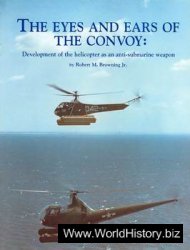Though I have spoken of time and units of time, the Nuer have no expression equivalent to "time" in our language, and they cannot, therefore, as we can, speak of time as though it were something actual, which passes, can be wasted, can be saved, and so forth. . . .
.OST comparative approaches to the study of time have an evolutionist ring to them; that is, they tend to look at what alien timekeeping systems lack in one or another quality relative to our own. We take this outlook because we are still experiencing the fallout resulting from the great explosion of ideas, emanating from the nineteenth century, about the time scale of life and the universe in which it resides.
Intoxicated by the success of the Darwinian rules that govern life systems, the new social scientists of the last half of the nineteenth century applied the evolutionary paradigm to create a developmental, progressive model of human society in general, a model that today we have begun to regard as misguided.
When we apply the notion of the ladder of progress to the classification of the timekeeping systems of other cultures, the results are fairly predictable. We find that all non-Western systems fall short for one reason or another: absence of technology, too little precision, lack of logic, or failure to apply sound reasoning. Such deficiency-oriented schemes always situate us at the top of a value-laden pyramid. But using our own way of knowing as a standard for studying time in other cultures robs us of the opportunity to confront the issue of whether and to what extent human knowledge is determined by the way a society behaves as opposed to objective forces or properties that lie outside of human culture.
In the following chapters, I shall explore the extent to which other peoples, from quasi-sedentary societies to bureaucratic states, can experience the same natural phenomena and, out of their own desire or necessity, devise an equally complex and useful time scheme as our own. In speaking of "their time," I shall mean how they both experience and reckon it—modes that can be quite different from those the British anthropologist E. E. Evans-Pritchard observed in the epigraph that opens this chapter.' The tribal societies I describe are relatively small groups of people who depend little on technology but strongly rely upon the seasonal cycles of nature, even to the degree that some of them do not remain in the same settled location the year round.
The Nuer are a tribe who reside in the upper Nile in what is now the Sudan, about 500 kilometers south of Khartoum. Back in the 1930s, when the British anthropologist E. E. Evans-Pritchard did the fieldwork for his classic study of their modes of livelihood and political institutions, they numbered nearly a quarter of a million and were relatively free of contact with outsiders. The young researcher found them to be a formidable people: tall, long-limbed, and handsome, with a complex and sophisticated kinship and political system and an economy immediately and directly centered on the raising of cattle. In fact, the best advice Evans-Pritchard could give anyone who wished to understand Nuer social behavior was "cherchez la vache," for they depended on their cattle for meat, blood, and milk. People follow cattle, and cattle follow people.
Anyone who leafs through the pages of The Nuer will discover a book that is basically about the structure of time. Reading it helps us to understand how time was conceived and comprehended by a pastoral seminomadic people who, possessing little in the way of material culture and technology, were directly and heavily dependent upon the local environment. The Nuer provide a stark contrast to the way time thought developed in the larger, more bureaucratically organized civilizations such as the Maya, the Aztec, or the Inca, whom I shall discuss in chapters 6 to 8.
Nuer people think about and make use of two different kinds of time rhythm. First of all, there is ecological time, which is decidedly cyclic in character. It connects people with the environment through changes in nature to which they react. "Eco-time" is made up of relatively short periods framed within the annual solar cycle. Then, there is structural time, a framework of much longer duration that connects people with one another; it seems to deal more with social rather than ecological concerns. Let us look at each of these schemes separately.




 World History
World History









